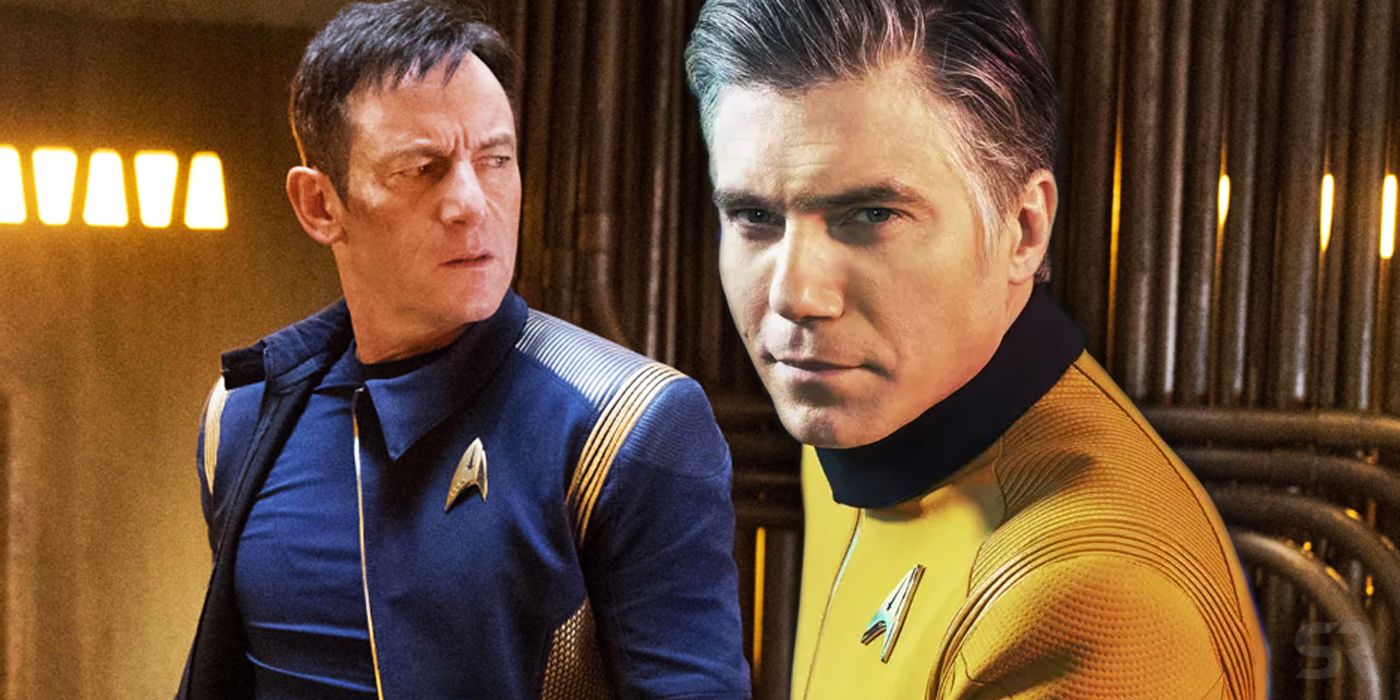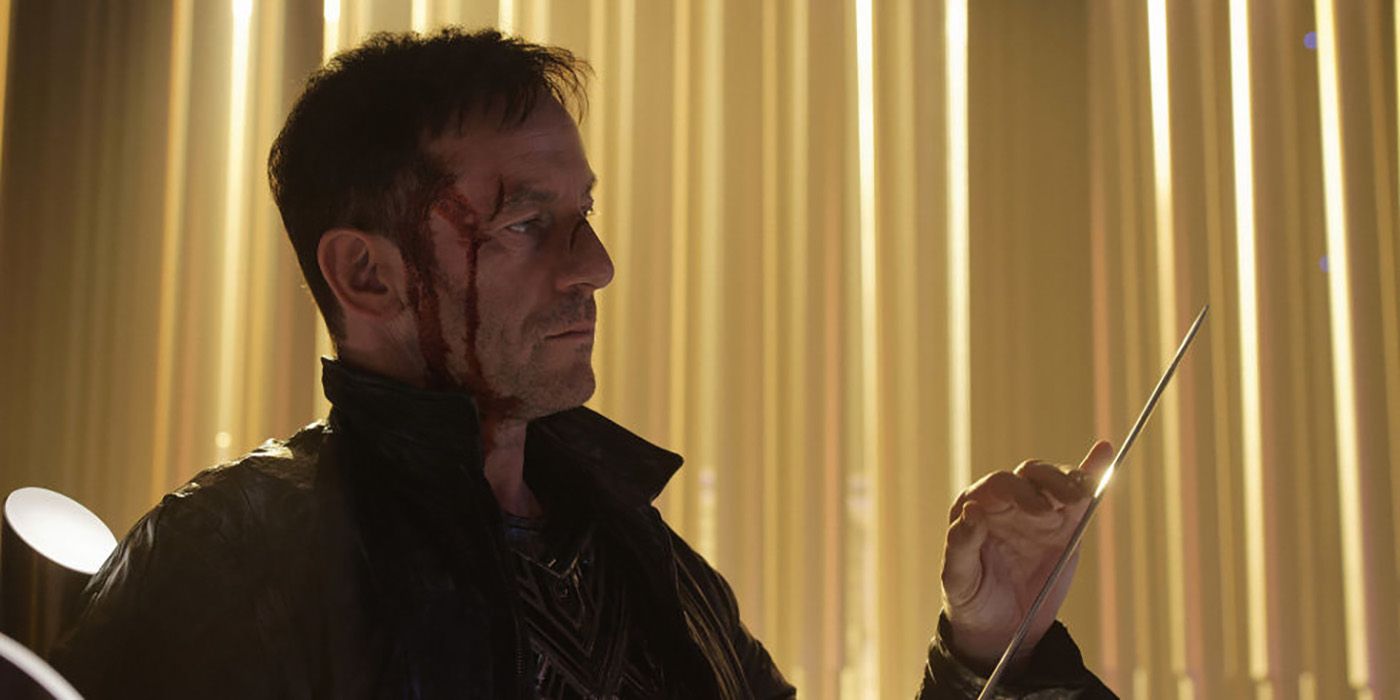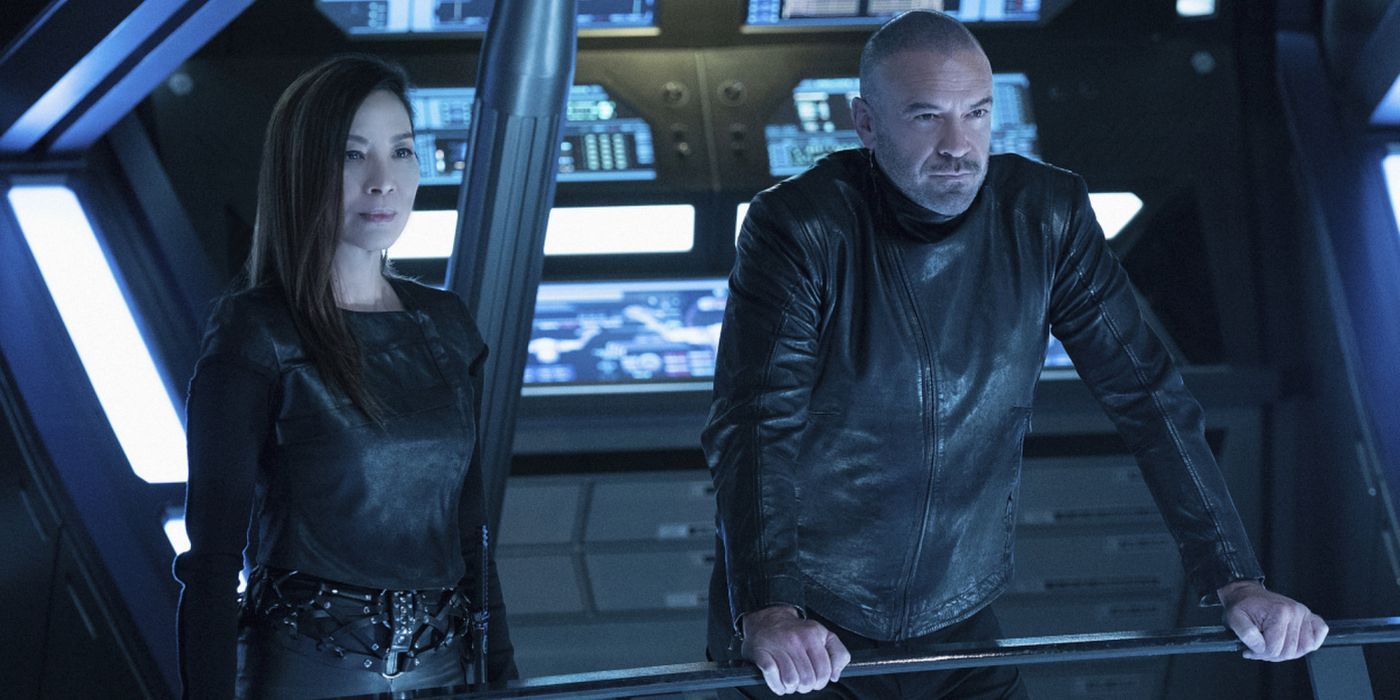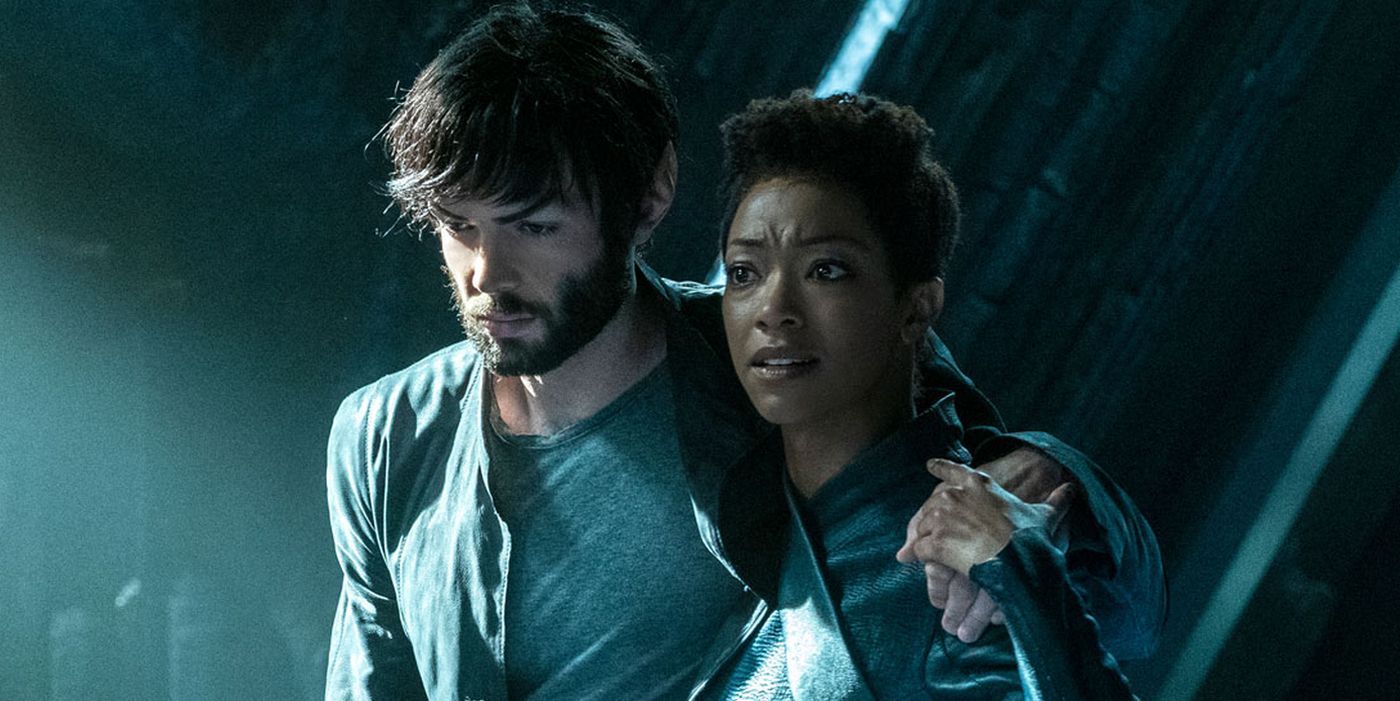Star Trek: Discovery season 2 is on the verge of making the same mistakes as its first season. The CBS All Access show got off to a shaky start, with a polarizing first season marred by behind the scenes drama. Season 1 showrunners Aaron Harberts and Gretchen J. Berg were dismissed from the show midway through production on season 2 due to allegedly abusive behavior, somewhat ironic for the duo who so openly acknowledged the influence of Game of Thrones on their version of Star Trek.
But season 2 of Discovery has been a marked improvement in virtually every way. The ensemble cast has come into sharper focus, the stories no longer hinge primarily on war with the Klingons, and Captain Pike has proved to be the missing element that ties together everything about the show that works - though it will have to do it without him in season 3, as Anson Mount will not be returning.
Related: Discovery Season 2 Is Better Because It's Properly Star Trek Now
And yet Star Trek: Discovery season 2 seems poised to make the same sort of mistakes the show made in the back half of its first season, which may speak to a deeper problem with the show than previously acknowledged.
- This Page: Where Star Trek: Discovery Season 1 Went Wrong
- Page 2: How Discovery Season 2 Is Making The Same Mistake
Star Trek: Discovery Season 1's Big Mistake Was Playing Its Themes Safe
Star Trek: Discovery's first season was met with much criticism for its violence and seemingly grimmer worldview than what had come before in the franchise. But darkness was never the season's fatal flaw; plenty of Star Trek has gone to incredibly bleak places thematically, and even marinated in war for an extended period - over half of Star Trek: Deep Space Nine took place in the middle of the galaxy-spanning, incredibly bloody Dominion War. That series explored the limits of the Federation's morality in stark, sometimes shocking ways.
Discovery very clearly aimed to explore similar territory, but that moral quandary was severely undercut by the season's worst decision - the origins of Gabriel Lorca. Initially presented as a once-upstanding Starfleet officer whose mind and soul had been compromised by war, he was a fascinating foil for Michael Burnham, whose own life had been turned upside down by the same war. Yet instead of earnestly grappling with the horrors of conflict and maintaining one's values in the face of unthinkable adversity, Lorca turned out to be a Mirror Universe refugee, a boring mustache twirler bent on universal conquest. Lorca died a villain's death, and when the war ended, there were very few ramifications for any of the series' key players. Admiral Cornwell's eleventh-hour threat to destroy the Klingon homeworld felt more like a thin excuse for the Discovery crew to reclaim the moral high ground, but it was a largely unearned moment, and one the show has curiously chosen not to address again. The notion of the Federation seriously contemplating genocide - even in the face of its own extinction - bears more rumination than what it got.
Related: Star Trek: Discovery Has A Bloody Star Trek VI Klingon Reference
This was always the main problem with Star Trek: Discovery season 1 - for all the dark posturing and allusions to serious, gritty prestige television, the show lost its nerve when it came to the big, existential questions about humanity and moral flexibility, sidestepping them in favor of a more cartoonish adversary.
Page 2 of 2: How Discovery Season 2 Is Making The Same Mistake
Star Trek: Discovery Season 2 Is Breaking The Section 31 Promise
Section 31 was a polarizing topic among Star Trek fans long before Discovery debuted. The shadowy Federation organization was introduced in Deep Space Nine as a sort of covert ops division that did the dirty deeds the Federation found too distasteful to carry out in public. In Deep Space Nine, Section 31's existence is a closely guarded secret, with only a handful of Starfleet personnel aware of it, and all of them disgusted by it.
Section 31 is in quite a different position in the era of Star Trek: Discovery. A century before the events of Deep Space Nine, Section 31 appears to be relatively well known throughout Starfleet, and presumably played a prominent role in the Klingon war that so tested the Federation's nerve. Section 31 has loomed large over season 2, with Captain Leland and newly recruited Mirror Universe Georgiou taking actions that would seem to push past even the wide-ranging purview the organization has enjoyed in the past. Leland and Pike serve as mirror images of each other - highly regarded Starfleet captains who could not possibly operate with less similar moral and ethical compasses.
Related: Did You Catch Star Trek: Discovery's Futurama Reference?
Yet in "Project Daedalus," it's revealed that many of the nefarious machinations this season have been undertaken by Control, Section 31's threat assessment system that has seemingly become sentient. There are good sci-fi stories to be told with a runaway artificial intelligence attempting to wipe out humanity, but it's not nearly as interesting as the notion of Starfleet grappling with its own soul, and results in Section 31 coming across as more incompetent than malevolent. It's a storyline that more cleanly absolves our Federation heroes and the organization they work for, rather than one that grapples with the fact that Section 31's very existence is in many ways incompatible with the Federation's ideals.
Can Star Trek: Discovery Season 2 Keep Its Focus?
There was no turning back from season 1's Lorca reveal, but Star Trek: Discovery season 2 can still recover from the Control story point. Even if they're not directly responsible for the murder and fraud perpetrated by their creation, Section 31 still has much to answer for, and seeing their influence and power curtailed in the wake of Control's rampage would both serve a continuity purpose, and also establish that Starfleet has left behind all traces of the rot that grew in its heart during the Klingon war. Considering CBS All Access is developing a spinoff Section 31 series starring Michelle Yeoh's Georgiou, that outcome may be a long shot, though it's still unclear what exactly that series would look like.
If nothing else, Star Trek: Discovery season 2 still has a lot of unfinished business. The Red Angel storyline still has to be resolved, and it stands to reason there will be some sort of revelation in the fraught relationship between Burnham and Spock. And credit where it's due - the character work in season 2 has been so much stronger that it can be easier to forgive disappointing plot points when the internal lives of characters like Saru, Culber, and Tilly have become so engaging. This is a fully formed group of characters in a way it very much was not in season 1's Burnham-specific storytelling, reminiscent of the better seasons of Star Trek: The Next Generation, when character stories were the main driver of the action rather than intricate, serialized plotting. It's unlikely Star Trek: Discovery will ever abandon the very in vogue serialization, but it's good to see it flesh out its supporting cast so the audience cares about virtually everyone on the bridge, not just Burnham.
That said, if Star Trek: Discovery is going to make the leap from good to great in season 3, it's going to need to wrestle with some of the big moral questions it has now seemingly hand waved two seasons in a row. Season 2's overall improvement suggests the show has yet to approach its quality ceiling, so there's still hope that it can eventually become the sort of show not afraid to answer the big questions. Unfortunately, it doesn't seem to be quite there yet in season 2, and that's a little sad.
Next: Star Trek Future: Upcoming Movies & TV Shows
Star Trek: Discovery streams Thursdays @ 8:30pm on CBS All-Access and internationally the next day on Netflix.




